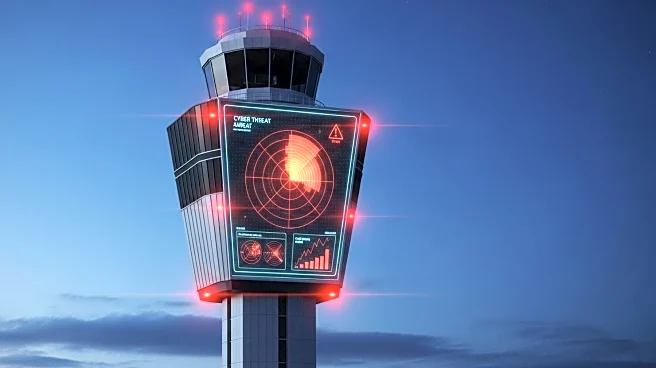What's Happening?
A cyber-attack on Collins Aerospace, a provider of check-in desk technology, has led to significant flight delays at major European airports including Heathrow, Brussels, and Berlin. The attack forced airlines to revert to manual check-ins, causing disruptions that began on Friday night and continued into Sunday. Brussels airport has requested airlines to cancel half of the departing flights scheduled for Monday due to the inability of Collins Aerospace to deliver a secure version of the check-in system. The cyber-attack is part of a series of recent hacks affecting large companies, including Jaguar Land Rover and British retailers Marks & Spencer and the Co-op.
Why It's Important?
The cyber-attack on Collins Aerospace highlights vulnerabilities in critical infrastructure systems, particularly those related to air travel. The disruption affects thousands of passengers and underscores the need for robust cybersecurity measures in the aviation industry. The incident may prompt airlines and airports to reassess their cybersecurity protocols and invest in more secure systems to prevent future attacks. The economic impact is significant, with potential losses for airlines due to flight cancellations and delays, and the inconvenience to passengers could affect consumer confidence in air travel.
What's Next?
Airports and airlines are working to resolve the issue and restore normal operations. Collins Aerospace is actively addressing the cyber-related disruption to its Muse software, which is used for electronic customer check-in and baggage drop. The UK’s National Cyber Security Centre is collaborating with Collins, UK airports, and British law enforcement to assess the impact of the incident. As the situation develops, airlines may need to implement contingency plans to manage passenger flow and minimize delays.
Beyond the Headlines
The cyber-attack raises questions about the security of digital systems in the aviation sector and the potential for similar incidents to occur in other industries reliant on technology. It also highlights the importance of international cooperation in cybersecurity, as attacks can have cross-border implications. The incident may lead to increased scrutiny of cybersecurity practices and policies within the aerospace industry.









